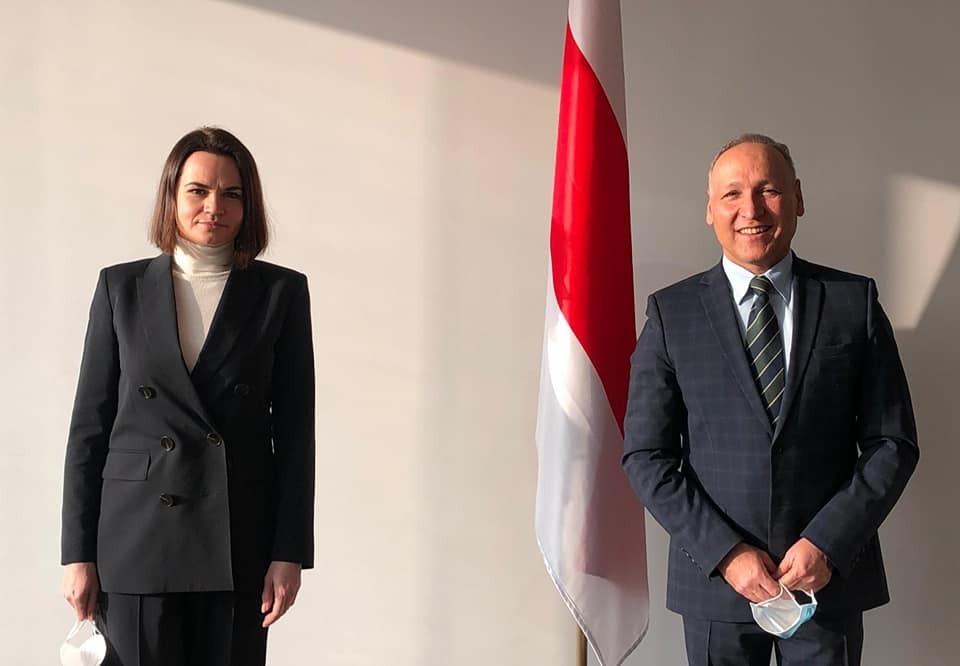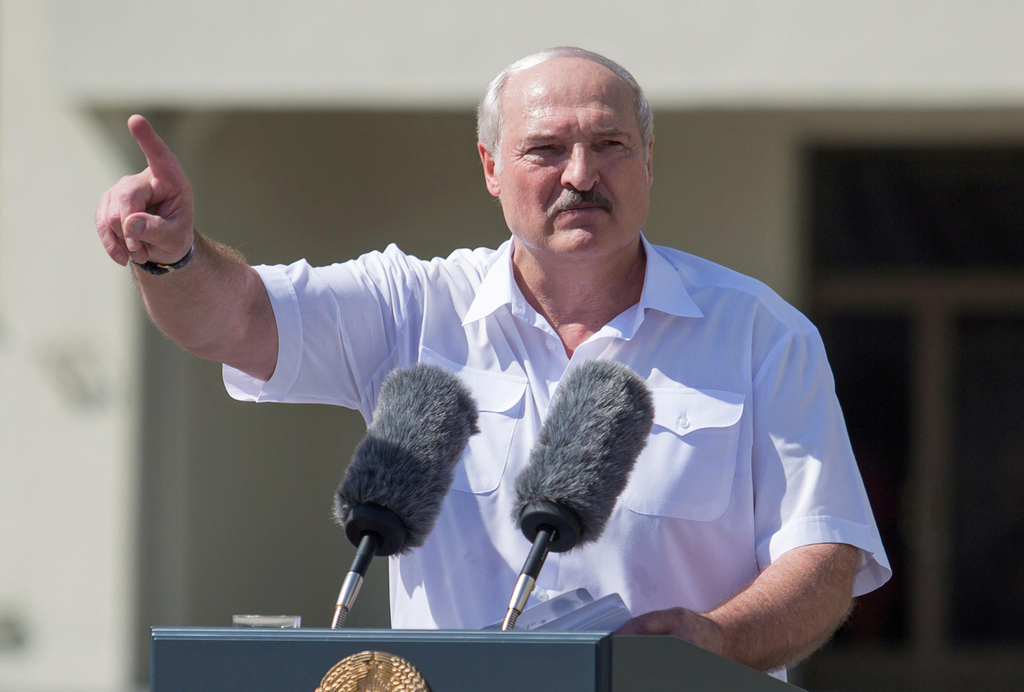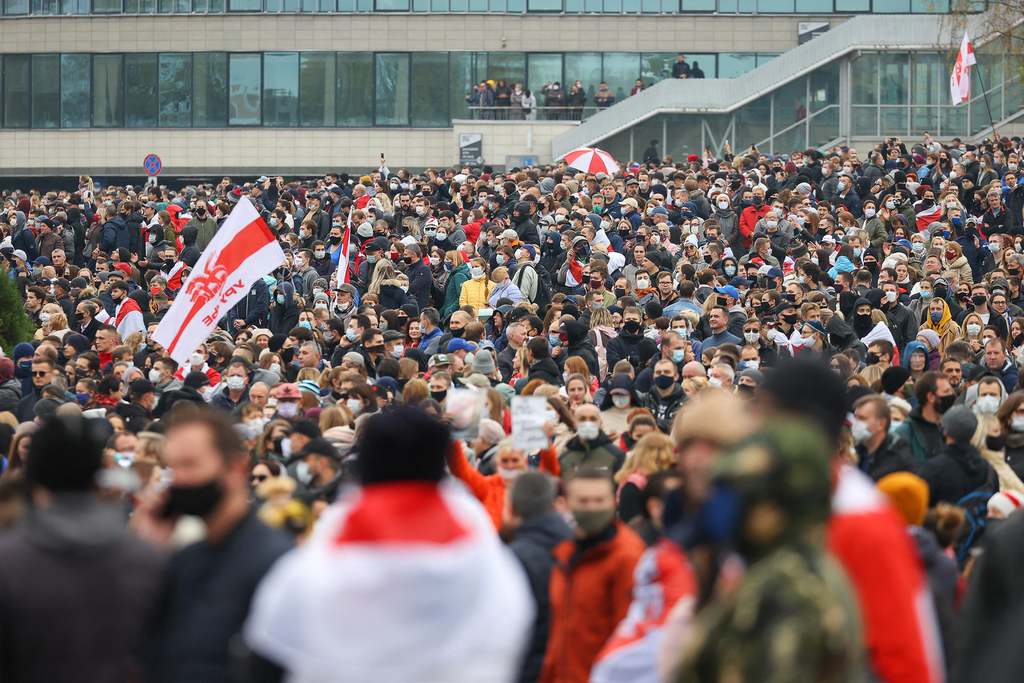Israel appears to have undergone a dramatic shift in its policy towards Belarus, which is mired in a severe crisis after more than 25 years of rule by Alexander Lukashenko, branded "Europe's last dictator."
Mass protests have been held in Belarus since the most recent presidential election in August, which is widely viewed as undemocratic, and neither the European Union nor the United States recognize Lukashenko as the legitimate leader of the country.
3 View gallery


Israeli Ambassador to Lithuania Yossi Levy meeting with Belarusian opposition leader Svetlana Tikhanovskaya in Vilnius
Last weekend, Israeli Ambassador to Lithuania Yossi Levy met with exiled Belarusian opposition leader Svetlana Tikhanovskaya, who has been granted political asylum by Vilnius.
The two sides, however, have differing accounts of the tone and content of the meeting.
According to the official Israeli version, Levy expressed to Tikhanovskaya "empathy for the people of Belarus and an expression of hope that the crisis in the country will be resolved soon."
But according to Tikhanovskaya, the meeting included an Israeli expression of full support for the people of Belarus' desire for freedom and democracy - in other words, a renunciation of the Lukashenko regime.
Sources in Jerusalem said Sunday that the meeting between Levy and Tykhnovskaya in Vilnius took place even as the new Israeli ambassador to Belarus, Alex Goldman-Scheinman, presented his credentials to Lukashenko himself at a ceremony in Minsk, an event boycotted by most Western countries.
The ceremony sparked a massive amount of anger both among the opposition in Belarus and the Belarusian community in Israel, which largely supports the democratic opposition.
The meeting in Vilnius, which was initiated by Levy, appears to have been designed to signal to the opposition leader that Israel does not blindly support Lukashenko's prolonged rule, but instead is looking to the day after he leaves power.
Protests against the Lukashenko regime in Haifa in September
Nonetheless, Israel has responded harshly to the Belarusian opposition's use of the Holocaust to promote its claim that Lukashenko is a modern European Hitler.
Jerusalem vehemently rejects the Belarusian opposition's use of yellow badges and other symbols associated with Nazi Germany to protest Lukashenko. Levy also raised this with Tykhnovskaya, asking her to publicly disavow anti-Semitic comments found in internal Belarusian dialogue.
In late November, after three months of ongoing opposition protests, Lukashenko announced he would leave office once a new national constitution had been adopted, although he did not offer a timeline for this.
Nonetheless, it was the biggest compromise by Lukashenko since the start of the popular protests and could signal that he finally understands that his long-standing rule is coming to an end.
The August election was Lukashenko's greatest political challenge since coming to power in 1994, although he was declared the victor by a huge margin, winning some 80% of the vote.
The result led to massive crowds taking to the streets in protest, often pitting themselves against Lukashenko's security forces.
According to human rights organizations, more than 19,000 people have been arrested in Belarus since the start of the protests, with thousands having been beaten by security forces.



